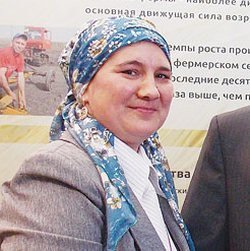Tatarstan to invest more than 2bn in saving the harvest
The rains have disrupted the deadlines and inflated the price of the harvesting campaign. Only a third of last year's volumes has been gathered
Tatarstan is expected to have a good harvest this year — experts predict 4,5 million tonnes of grain. But the abnormally cold and wet weather will delay the end of the harvesting campaign — for 2-3 weeks, according to preliminary estimates. Since meteorologists do not give rosy forecasts until the end of the summer, farmers are in a hurry to gather the grain and properly process for storage: to dry and clean from garbage fractions. Additional expenses of households for these activities as early as 9 August amounted to 184,1 million rubles. But only 9,3% of the area has been harvested. As Realnoe Vremya found out, taking into account the cost of drying and cleaning of all grain from the fields, which is about 5 million tonnes, the republic will invest more than 2 billion rubles in saving the crop.
Experts of the ministry of agriculture and food: dryers will solve the problem
In Tatarstan, 132,800 hectares have been harvested — it is only 9,3 per cent of the total area planted with grains. The rains did not allow to harvest faster. In addition, the grain needs to be dried and cleaned before it is sent to the storage. Minister of Agriculture and Food of Tatarstan Marat Akhmetov urged the farmers to “seriously reconsider the tactics of the current harvest”. In the first place, he advised farmers to actively engage the grain drying systems, without losing time. He is sure that the republic is quite capable of coping with the consequences of bad weather, using all the dryers around the clock. According to the ministry, the cost of these services is almost the same at all grain-receiving enterprises of the republic. The recommended prices of 2019 for grain-receiving enterprises and elevators for drying 1 tonne of grain by 1 per cent — 54 rubles, and for cleaning 1 per cent of weed admixture — 52 rubles per tonne.
“Of course, grain drying is an additional cost, but it is immoral to lose the grown bread by saving on this,” said Marat Akhmetov.
Head of the Department of Agriculture Development at the Ministry of Agriculture and Food of the Republic of Tatarstan Irek Sadykov told Realnoe Vremya:

The arithmetic of expenditures
Last year, 3,7 million tonnes of grain were gathered in Tatarstan. Kamiyar Baytemirov, the head of the Association of Farmers and Farmsteads of Tatarstan, says that this season has turned out to be more productive. According to him, the bunker weight of grain, which will be sent to be prepared for storage, is expected to be about 5 million tonnes throughout the region. But because of the rains, about 10 per cent of this mass will go away in the process of drying and removal of impurities. So, if the harvesting campaign is completed without serious losses, the harvest can be estimated at about 4,5 million tonnes of grain, Baytemirov believes. But to make these forecasts come true, they need to spend a lot of money.
The humidity of grain should not be higher than 15% to store it normally. According to Baytemirov, the average humidity of grain in the fields of the republic is about 20% (depending on the crop it can be more or less). Based on the fact that the cost of drying a tonne of grain by 1% at the grain-receiving stations of the republic is 54 rubles, it will cost 270 rubles to dry it to an acceptable level. The Association of Farmers doubts that before the end of the harvesting campaign the harvest can dry in the fields naturally: most likely, it will be necessary to include all the collected bread for drying. Multiplying the total planned for Tatarstan bunker weight of grain (5 million tonnes) by 270 (the cost of drying one tonne to an acceptable 15% humidity), we get the amount of expenses — 1,35 billion rubles, and it is only for drying.
Another mandatory item of expenditure: removal of weed admixture and debris from the gathered grain. If the weather’s all right, it is about 3%, but now because of the rains, its level has increased to an average of 6%. So, if the grain-receiving enterprises will work at the recommended rates — 52 rubles per 1% per tonne — “extra” expenditures of agricultural producers will be 156 rubles per tonne. Based on the planned 5 million tonnes of bunker weight, the farmers of the republic will cost it additional 780 million rubles.
In total, according to preliminary calculations, due to the rainy August, agricultural producers will invest 2,13 billion rubles in saving the harvest of Tatarstan. The farmers have confirmed — the calculations are correct. And it is for drying and cleaning of grain alone. Additional transport costs and losses of farmers from the decline in the quality of wheat are difficult to predict even approximately.
According to statistics of the ministry of agriculture and food as of August 8, the republic has gathered 432,200 tonnes of grain. Its average humidity is 20% (in many farms it is much higher) and the foreign matter content is 6%, and at least 184,1 million rubles have already been spent on the preparation of grain for storage in Tatarstan.
There will be losses, but they can be minimized
Kamiyar Baytemirov, the chairman of the Association of Farmers and Farmsteads of Tatarstan, says that the harvesting campaign will be delayed for a total of at least three weeks: meteorologists predict that unstable weather will continue. This is very disturbing for agricultural producers.
“I am returning from the Tulyachinsky district,” Baytemirov commented while being on the road. “I see not very pleasant picture: in some fields, wheats are already laying down, and it is possible losses of a crop by 25-30 per cent. We don't have time to wait after the rain when everything dries out: time is already lost. Dryers, about which Minister Marat Akhmetov says, can somehow improve the situation. But in the republic, there are remote farms that require transport to deliver the harvest for drying and bring it back — all this entails additional costs. It will be difficult for all agricultural producers, unplanned costs are expected, and they will suffer losses. But we need to do something and use the resources we have.”
The chairman of the Association of Farmers said that if September is warm, it will have a positive impact on potatoes and beets. But with the wheat, there is a problem: rains wash out gluten from grain. The farmers could sell quality wheat as food-grade one. Now, according to Kamiyar Mizhagitovich, for the most part, farmers will sell it as feeding one, at reduced prices, and thus lose money. In the absence of sustainable pricing, and even in adverse weather, agricultural producers cannot plan their business, cannot give a guarantee of repayment of loans to banks. All this has a bad effect on their financial condition.

Everyone is equal before the weather
Ayzat Zaripov, the chief agronomist at Logos PLC from Rybno-Slobodsky district, says that the problems in the economy began in May: oddly enough, abnormally warm weather also did a disservice.
“Each crop depends on the weather in its own way. The problem can be not only rains, but also heat: for example, abnormally warm May severely damaged the rape crops. The thing is that this year we have net the beekeepers halfway: they sprayed rapeseed fields against pests only in the evenings. So they did not have time to finish this process on time and insects could multiply. As a result, crops were seriously damaged.”
Ayzat Khalimovich also complains that gluten is washed out of the grain, and therefore it loses its quality:
“The wheat which usually was of the third class (allowable for bakery) is now lowered to the category of feeding,” says the agronomist. “Besides, because of the rains, the ripened crop falls on the ground, and this is very unfavourable for the harvesting process: a lot of grain just rots. Wheat yields are good this year, but the rains are shifting the timing of the harvesting campaign, so we forecast losses compared to last season. So far, I cannot say the exact numbers — it will become clear only when the harvesting campaign finishes.”
Unfavourable weather creates problems for all: both crop farms and livestock farms. The harvesting of not only cereals but also forage crops is delayed, and this entails serious financial losses.
Minsina Latypova runs a livestock farm in Vysokogorsky district. As she said, last year the weather allowed to prepare good forage. But this season the first mowing in mid-June was not bad. But the rains do not allow them to proceed to the second one.

Minsina Minzaripovna had plans to increase the number of livestock in the coming season. Now she doubts that they can be implemented.